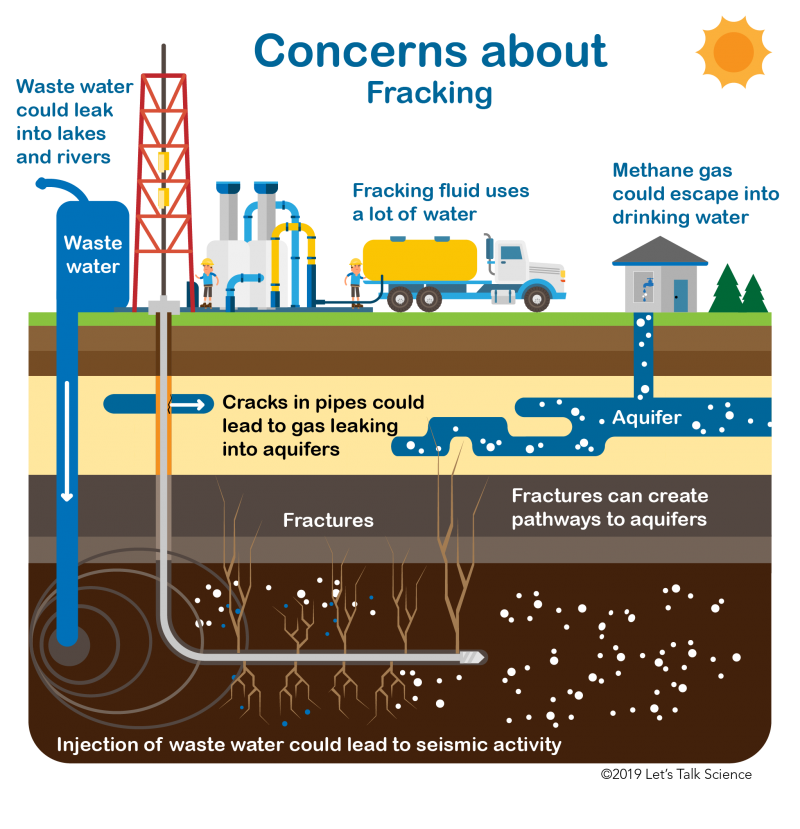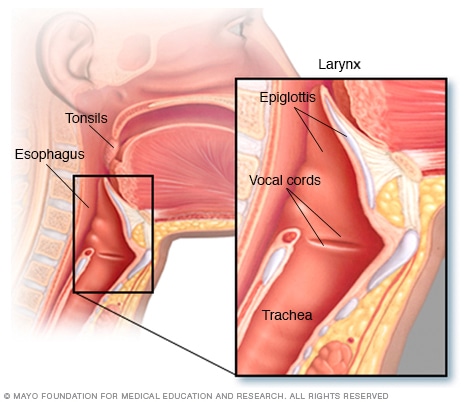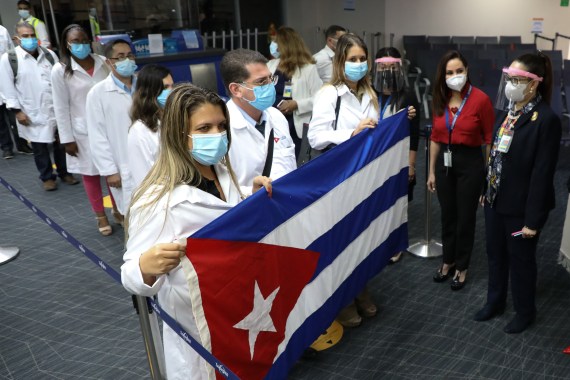Hydraulic fracturing informally referred to as fracking is an oil and gas well development process that typically involves injecting water sand and chemicals under high pressure into a bedrock formation via the well. This process is intended to create new fractures in the rock as well as increase the size extent and connectivity of existing fractures.
 What Is Fracking Let S Talk Science
What Is Fracking Let S Talk Science
The process involves the high-pressure injection of fracking fluid primarily water containing sand or other proppants suspended with the aid of thickening agents into a.
What is fracking. Fracking in natural gas and petroleum production injection of a fluid at high pressure into an underground rock formation in order to open fissures and allow trapped gas or crude oil to flow through a pipe to a wellhead at the surface. Fracking explained in five minutesFracking is a controversial topic. Since the human world runs on all sorts of oil and gas it is necessary that we extract these resources if we want to continue using them.
Fracking is being investigated as the cause as the injection wells used in the storage of hydraulic fracturing wastewater can. Fracking is a hotly debated environmental and political issue. Fracking definition is - the injection of fluid into shale beds at high pressure in order to free up petroleum resources such as oil or natural gas.
Types of fracking have been used for decades but the term now usually refers to a specific technique called. Fracking short for hydraulic fracturing is a process for extracting natural gas by drilling thousands of feet into the ground and injecting a solution of. On the one side the gas drilling companies on the other citizen opposed to this drilli.
Fracking causes volatile organic compounds including carcinogens like benzene and ethyl-benzene toxic compounds that impact the respiratory and neurological systems. Fracking is believed to be the cause of Oklahomas strongest recorded quake in 2011 and more than 180 tremors in Texas between 2008 and 2009. Advocates insist it is a safe and economical source of clean energy.
Fracking has raised concerns over its economic and environmental consequences. Fracking is the technology that allows oil and gas to be extracted from shale rock. One of the main pollutants released in the fracking process is methane.
Fracking has caused a bonanza of new drilling and with it comes more threats to sensitive lands that are too wild to drill. Oil and gas industry emits 13 million metric tons of methane annually. Critics however claim fracking can destroy drinking water.
However without rigorous safety regulations it can poison groundwater pollute surface water impair wild landscapes. Research indicates the US. Hydraulic fracturing or fracking is revolutionizing oil and gas drilling across the country.
Fracking and Air Quality. Formaldehyde another carcinogen is also elevated around fracking communities. Fracking is a slang term for hydraulic fracturing which is the process of creating fractures in rocks and rock formations by injecting specialized fluid.
Fracking is a recent method of extracting natural gas and oil from the earth. Hydraulic fracturing also called fracking fracing hydrofracking fraccing fracing and hydrofracturing is a well stimulation technique involving the fracturing of bedrock formations by a pressurized liquid. Sunlight helps convert the methane to formaldehyde.











